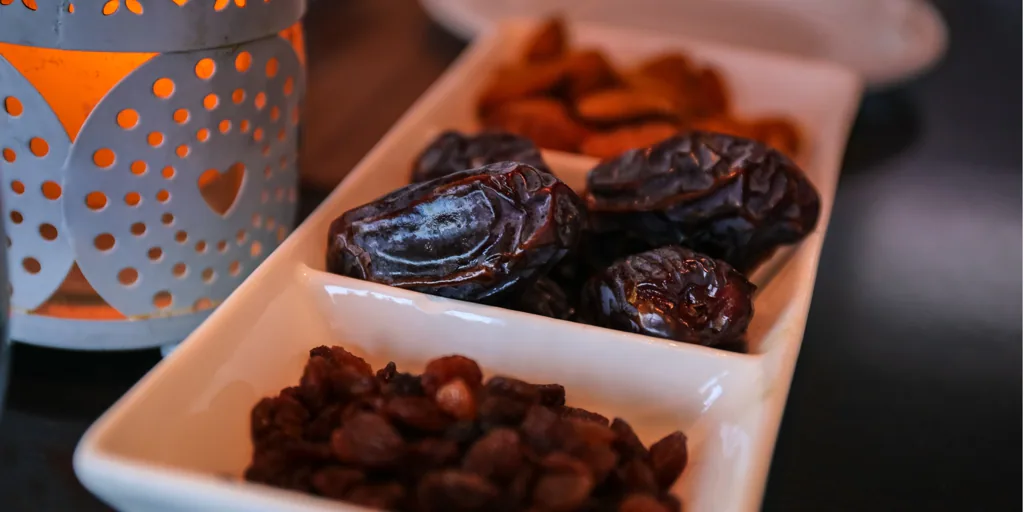Whether you have had a healthy nutrition your whole life as if not, it is very important that you review your diet after 50. Around that age, according to experts, it is vitally important that we make better food choices and make sure we get enough nutrients to enjoy a good old age. Since, in addition to having to adapt to a potentially slower metabolismwe must also compensate for things like the tendency for weaken the bonesthat bowel function is slower and that the decrease muscle mass.
According to a study conducted in 2022 by the Pennsylvania State Universityand published in the magazine ‘Advances in Nutrition‘, prunes can be good for the bone healthespecially for those people who suffer a great bone loss at some point in your life, such as postmenopausal women. Likewise, a new study, conducted at the same university and published in the journal ‘Food & Function‘, has revealed that the consumption of said food can also improve gut microbiota of postmenopausal women.
Why are prunes good for the health of our bones?
Researchers found that prunes may help prevent or slow bone loss in postmenopausal women, possibly due to their ability to reduce inflammation and oxidative stresswhich contribute to this loss.
“In postmenopausal women, lower estrogen levels can trigger increased oxidative stress and inflammation, increasing the risk of weakened bones that can lead to fractures,” he said. Connie Rogersassociate professor of nutritional sciences and physiology, adding: “Incorporating prunes into the diet could help protect bones by slowing or reversing this process.”
The osteoporosis is a condition in which the bones become weak or brittle and can happen to anyone at any age, but according to researchers, it is more common among women older than 50 years. A condition that affects more than 200 million women all over the world and causes almost nine million fractures every year.
“Incorporating prunes into the diet could help protect bones by slowing down or reversing this process.”
Connie Rogers
Associate Professor of Nutritional Sciences and Physiology
While there are medications to treat osteoporosis, the researchers explained that there is growing interest in ways to treat the condition through food. “Fruits and vegetables that are rich in bioactive compounds such as phenolic acid, flavonoids and carotenoids can potentially help protect against osteoporosis,” he said. Mary Jane De Souzaprofessor of kinesiology and physiology.
According to the researchers, bones are maintained throughout adult life by processes that continually build new bone cells while removing old ones. But after the age of 40, this breakdown of old cells begins to leave behind the formation of new ones. This can be due to multiple factors, such as inflammation and oxidative stress, which is when free radicals and antioxidants are unbalanced in the body. However, prunes have many nutritional benefits, such as minerals, Vitamin K, phenolic compounds y Dietary fiberall of which can help counteract some of these effects.
For their review, the researchers analyzed data from 16 preclinical studies in rodents, ten preclinical studies and two clinical trials. Across all of the studies, the researchers found evidence that eating prunes helps reduce inflammation and oxidative stress and promotes bone health.
For example, clinical trials found that eating 100 grams prunes (about 10 servings) every day for a year improved bone mineral density of the forearm and lower spine bones and decreased signs of bone turnover. In addition, eating between 50 and 100 grams a day for six months prevented loss of bone density and decreased the TRAP-5band bone resorption markercompared to women who did not eat prunes.
Why are prunes good for the intestinal microbiota?
“Previous research has shown that postmenopausal women experience health benefits from prune consumption,” explained the new study’s author, Mary Jane De Souza.
A study that showed that the consumption of raisins results in a remarkable enrichment of the bacteria of the family ‘Lachnospiraceae‘. A group of bacteria that has been associated with the ability to reduce inflammatory markers in the body and help maintain the integrity of the intestinal barrier.
According to experts, menopause is a period marked by the decline in ovarian hormones, a change that can cause health problems such as increased body fatthe decreased metabolismthe insulin resistance and negatively affect the intestinal microbiota.
“Consumers are increasingly aware of the good health of their intestinal microbiota and this study reveals the role of prunes as a healthy food for the intestine,” he explains. Andrea N. Giancollinutritional advisor of the California Prune Board.
In the study participated 143 postmenopausal women between the ages of 55 and 75, who were assigned to one of the three groups of treatment: no prunes (53 women), 50 grams of prunes a day (54 women) and, finally, 100 grams of prunes a day (37 women). The study lasted for 12 months and the results indicated significant changes in the microbiomes of the prune-treated groups.
Finally, this new study adds to the growing body of research exploring the relationship between prune consumption, gut health, and possible beneficial effects on other body systems, such as bone health.
